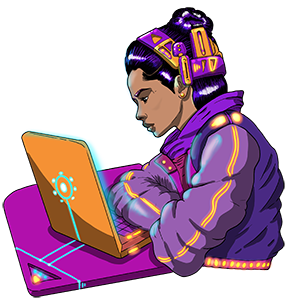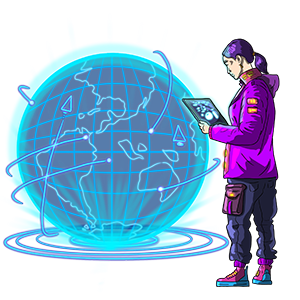Remakes and remasters are thriving across multiple media industries, and the gaming world is no exception. Driven by nostalgia, new tech, and a growing audience of global players, developers are dusting off their archives and reimagining the games that defined generations. The savviest among them know that reviving a classic takes more than just visual upgrades or smoother mechanics. At its core, an effective upgrade lies in how a story is told—and retold—through language.
Successful modern remakes offer developers their own trip down memory lane, as well as a chance to refine the original dialogue, expand narratives, and connect with players in new regions. For developers who want to seize those opportunities, this is where localization plays a starring role in that process.

Giving the Dialogue a Second Look
Many older games were originally localized for new audiences under tight deadlines at a time when access to creative context, cultural research, and dedicated tools was far more limited than it is today. While some of those translations are considered iconic today, others now feel stiff, outdated, or even insensitive. Language needs to evolve appropriately in a remake, and when a game is remade to include new scenes or voiceovers, the language used needs to match this evolution, too. In many ways, it is a polishing process, but above all else, it’s a way to ensure consistency across an expanded story, reestablish character voices, and preserve the emotional flow of the game across languages.
Today’s remakes give localization teams the rare chance to revisit scripts to enhance rhythm, clarify tone, and update expressions to better reflect both the original intent and modern standards of communication. The result is a more immersive and accurate experience for a global audience, which respects the original content while allowing it to speak more fluently to modern players.
What Persona 5 Royal Taught Us
A strong example of evolving localization can be found in Persona 5 Royal. This release was more than a traditionally expanded edition: it introduced a whole new semester, deeper character arcs, and an entirely revised tone. For players who had engaged deeply with the original, some of the localization choices made at the time, such as awkward dialogue or outdated jokes, stood out.
The remake addressed many of these issues, with the localization team refining character voices and responding to fan feedback about their portrayals. One particularly notable change was the softening of scenes that previously portrayed queer characters in stereotypical or uncomfortable ways.
While the localization didn’t overhaul the script entirely, it demonstrated that developers were listening, adapting, and striving to meet the cultural and emotional expectations of a broader, more diverse audience.
The Lingering Challenges of Reimagined Content
For localization teams, remakes present unique challenges that extend beyond the always-present goal of linguistic accuracy. Other challenges involve the careful consideration and possible reframing of game elements to meet the broader expectations of today’s players, with the idea that such changes will better resonate with a modern audience, and even pave the way to whole new markets. Some key localization challenges developers face when revisiting older titles are:

- Outdated References and Humor
Jokes or pop culture nods that once felt fresh may now fall flat or be misunderstood by a modern audience. Localization teams must decide whether to adapt or replace these elements while ensuring the game’s tone is kept intact.
- Shifting Sensitivities
Content that was once considered acceptable may now feel exclusionary or insensitive. A game’s language, stereotypes, and themes need to be evaluated through today’s lens and require careful adaptation to preserve the heart of the game.
- Modern Player Expectations
Dialogue that worked in the original release may now sound stilted or unnatural. Contemporary players expect smooth phrasing, completely authentic character voices, and a consistent emotional tone not only across languages, but also across platforms.
The Takeaway
Remakes breathe new life into classic games, giving developers an opportunity to rediscover a story, and to tell it even better. By investing in thoughtful, culturally aware localization, developers can ensure their remakes resonate with today’s global players. It’s a chance to revisit the past and celebrate what worked—and reframe what didn’t. When done right, localization does more than just preserve a game’s legacy. It expands it.



